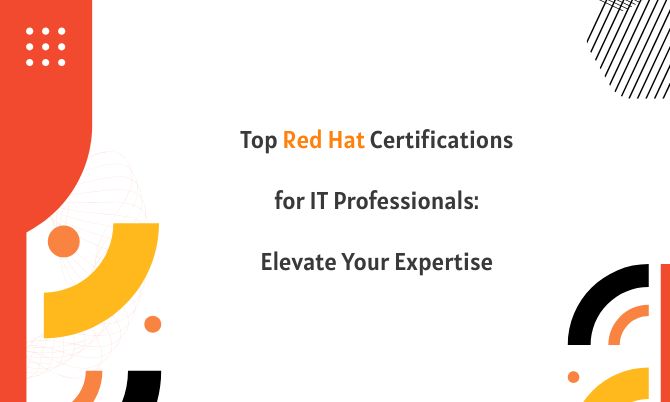Red Hat certifications stand out as premier credentials in the IT industry, demonstrating proven expertise in enterprise technology. These industry-recognized certifications verify mastery of Red Hat's powerful suite of tools and solutions. In today's rapidly evolving tech landscape, where automation, containerization, and cloud computing drive innovation, Red Hat certifications provide professionals with a significant competitive advantage.

The Red Hat Certified System Administrator (RHCSA) is an essential credential for IT professionals working with Red Hat Enterprise Linux (RHEL) environments. To earn the RHCSA, candidates must successfully pass the EX200 exam, which tests core system administration skills.
Key competencies covered in this certification include:
Configuring and maintaining file systems
Managing users and groups
Installing and configuring software packages
Setting up network configurations
Managing system services
The RHCSA serves as the foundational certification for anyone interested in working with Red Hat systems and is ideal for junior system administrators or those looking to specialize in Linux administration.
For professionals looking to take their Red Hat expertise to the next level, the Red Hat Certified Engineer (RHCE) is a logical progression from the RHCSA. The RHCE credential focuses on automating tasks using Red Hat technologies, such as Ansible Automation, to efficiently manage and deploy systems.
To earn the RHCE, candidates must pass the EX294 exam, which emphasizes automation, DevOps practices, and managing multi-system environments. This certification validates the ability to:
Automate system administration tasks using Ansible
Integrate emerging Red Hat technologies, such as Red Hat OpenShift and Red Hat Satellite
Deploy and configure complex multi-system environments
Automate software and security patch management
The RHCE credential is highly valuable for professionals aiming to work in DevOps environments, as it equips them with the skills necessary to streamline processes and reduce manual intervention. Additionally, it proves proficiency in automation, a critical component of modern IT infrastructure.
With the growing demand for containerized applications, the Red Hat Certified Specialist in Containers certification provides expertise in managing containers and containerized applications. This certification is ideal for professionals working with container technologies such as Podman and Docker.
Candidates can earn this credential by passing the EX188 exam, which covers:
Running and managing containers
Deploying containerized applications
Creating custom containers
Understanding the container lifecycle and best practices
As more organizations adopt containers for scalability and portability, the Red Hat Certified Specialist in Containers certification positions professionals to play a key role in managing and deploying containerized environments.
As containerized applications gain traction, the Red Hat Certified OpenShift Administrator certification has become an essential credential for those managing cloud-based applications using Red Hat OpenShift. OpenShift is a leading container application platform built on Kubernetes, and the certification demonstrates the ability to configure, deploy, and manage OpenShift clusters.
To earn this certification, candidates must pass the EX280 exam, which tests knowledge in:
Installing and configuring OpenShift clusters
Managing users and access controls within OpenShift
Troubleshooting OpenShift-related issues
Deploying and managing applications in OpenShift
Red Hat Certified OpenShift Administrators are in high demand, particularly in organizations adopting cloud-native technologies and container orchestration platforms like Kubernetes and OpenShift.
Red Hat certifications are not just about validating skills; they represent a commitment to mastering some of the most important technologies in modern IT infrastructure. Here are a few reasons why pursuing Red Hat certifications is a smart career move:
Industry Recognition: Red Hat certifications are globally recognized and respected, making them an excellent addition to any IT professional’s resume.
Career Advancement: These certifications demonstrate expertise in high-demand skills, helping you stand out to employers and secure more advanced job roles with higher salaries.
Proven Knowledge: Red Hat exams are performance-based, ensuring that certified professionals have hands-on experience and can apply their knowledge in real-world scenarios.
Staying Competitive: As technologies evolve, particularly in the areas of automation, containers, and cloud computing, Red Hat certifications ensure that professionals remain up-to-date with the latest industry trends.
Red Hat certifications play a critical role in the career development of IT professionals, offering both foundational and advanced levels of expertise in system administration, automation, containers, and cloud application management. Whether you're just starting your career or aiming to specialize in DevOps or container technologies, earning a Red Hat certification can significantly enhance your skills and marketability in the IT industry.